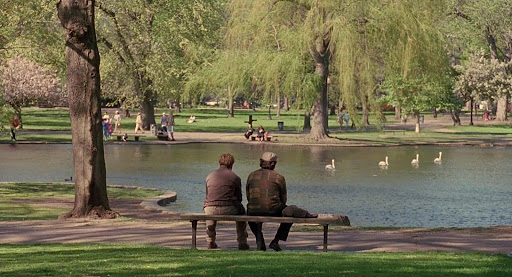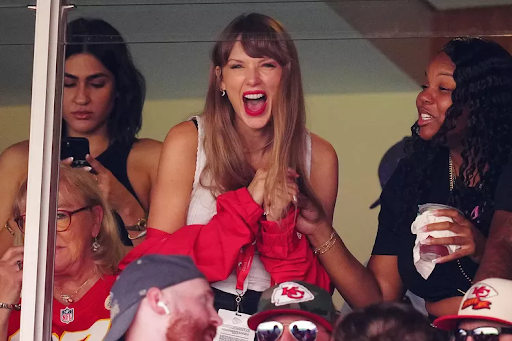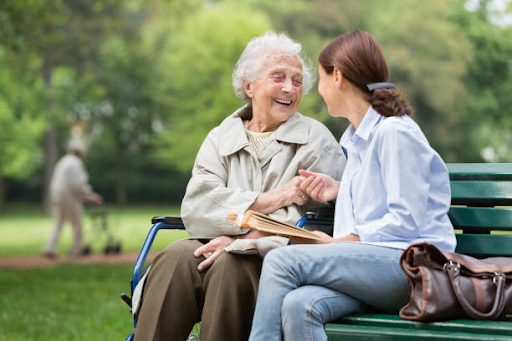Freshmen…Seniors…What’s the Difference?
Welcome to another year at Pentucket! I hope you’ll enjoy your stay! Why don’t you just sit down, make yourself comfortable and read this story!
At first glance, seniors and freshmen don’t seem to have a lot in common. For instance, seniors drive, freshmen walk. Most seniors work, most freshmen don’t. Seniors are seen as more responsible and freshmen are viewed as rather inexperienced.
But! There is one reason we are all here: to learn.
I interviewed Pentucket freshman, Lauren Imperioso and when I asked her what she thought seniors and freshmen have in common, she told me, “They both probably want to get through the year well ― well not ‘well’, successfully.”
Upon consideration, freshmen and seniors have more in common than meets the eye. The two classes are allowed to play the same sports and freshman and seniors are both allowed to take some of the same electives such as creative writing, band, or theatre.
However, it is much easier to point out the differences between the two classes. I asked the same question I had asked Lauren to Pentucket senior, Connor Durkin. His reply was that seniors and freshmen are similar by “the fact that we’re here to learn. Otherwise nothing.”
Students are mainly focused on the differences between the two classes because there are so many. Seniors get more benefits than other classes do, such as “senior sign in/out”, they have the option of going to prom, they get parking spaces before anyone else, there are yearbooks, superlatives and more options for electives.
When I asked Durkin how he felt about being at the top of the school again, he replied “Pretty good. It’s better than being at the bottom.” In some aspects Durkin may be very right. Freshmen have the roughest time out of all the classes in high school because they are in a transition period.
In an interview with Ms. Cora Ducolon, I asked her what she liked about freshmen. She replied “They are energetic. They are silly and loud and playful.” After asking if that was a good thing or a bad thing Ducolon said “Both.” She compared freshmen to puppies. “I think of them as puppies. They’re awful in the hallways, always jumping on each other. Freshmen are like a box of puppies. One by itself is cute; you can keep one under control, but not a whole bunch of them.
The freshmen should be sympathized with because they are new to high school, inexperienced and need to be shown the way high school works.
Seniors have the benefit of knowing more teachers and upperclassmen. They know the way the schedule works. Seniors are already done adjusting to high school and are starting the very tedious process of college searching.
During my interview with Ms. Ducolon, I asked her what she thought of the seniors. She said “I think seniors are great until April. They are mature adults, they have opinions and they have self-control and like school because they are adults and are great.” When I pressed her on why she liked them until April, she responded, saying “Ninety percent of them have either gotten into college or jobs or the military and they give up doing schoolwork.” She described the lack of effort as caused by the fact that their grades don’t matter anymore now that they’re into college.
Overall, Durkin and Imperioso agreed that seniors and freshmen are both here to learn new things. However, Ducolon believed that the only things seniors and freshmen had in common was their humanity. I asked her what she thought the similarities between the two classes were and she stated “They’re human”, and then added after some thought, “They’re younger than I am. So , they have similarities of young people of that generation. In other words, very little.”
There is no doubt about how the classes have several differences and few similarities.
Despite the differences the freshmen must be given credit because they are here to learn the works of high school and to take on the challenge of adjusting to a new period of their lives.












Shannon Sands • Oct 17, 2013 at 8:52 pm
It’s very interesting to hear points of view from two different classes. I do agree that freshman and seniors are a lot different. We seniors are more mature and used to being in high school and that is due to being older and having been here for almost four years. However, we are still learning and a have a lot further to go. Looking at the freshman reminds us of how far we’ve come. So seniors are just leveled up versions of freshmen, but that’s no reason to look down on freshmen and treat them like they’re lesser than us.
Emily Queenan • Oct 9, 2013 at 9:20 pm
The article is interesting and showed many different points of view I haven’t really thought of before. Some parts I definitely agree with and would add to while others I question a little. I thought the idea was interesting though and the overall article was well done!
Sam Romano • Oct 9, 2013 at 8:44 pm
This is a very informative essay and I learned very much from reading it. My comprehension of this subject is completely changed and I am informed now.